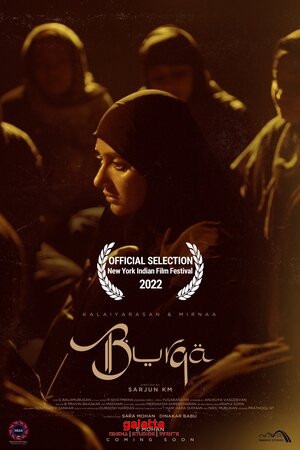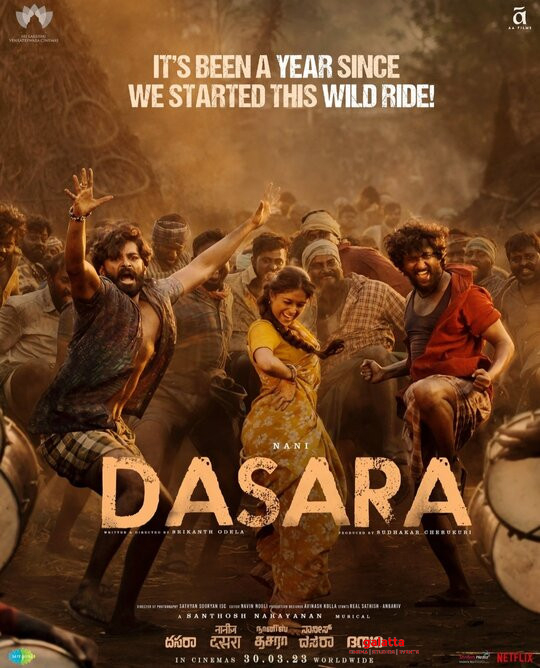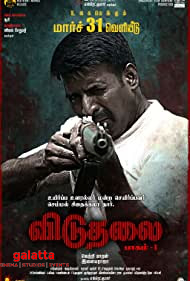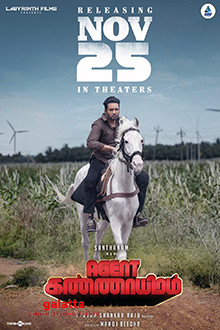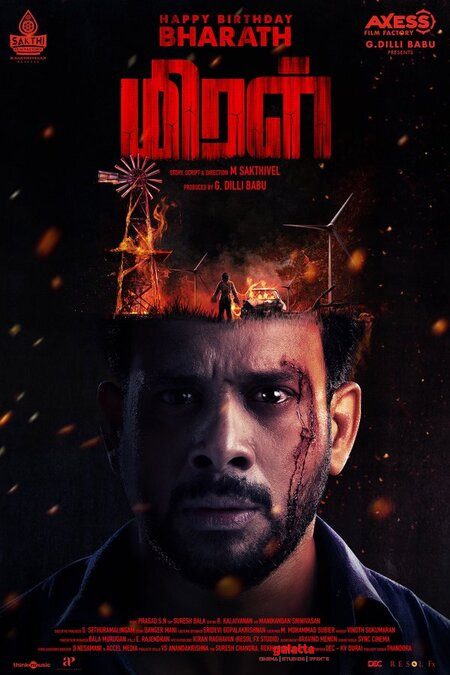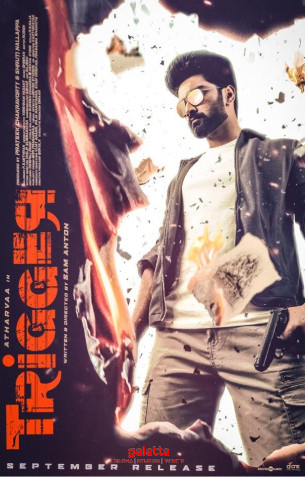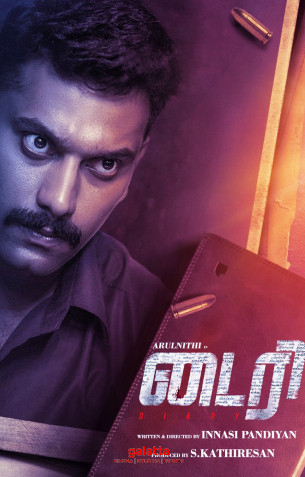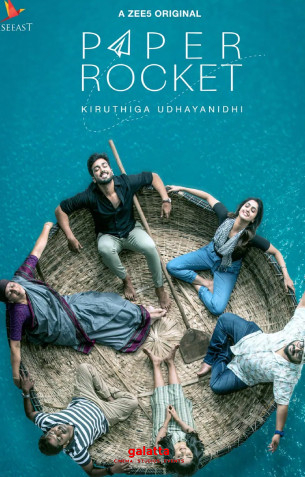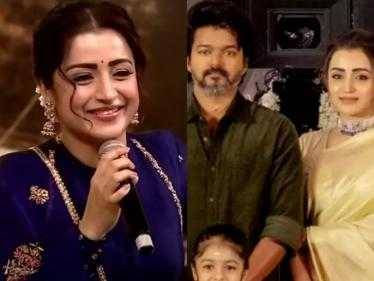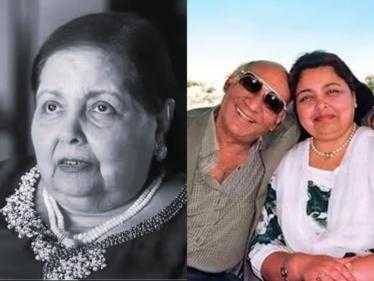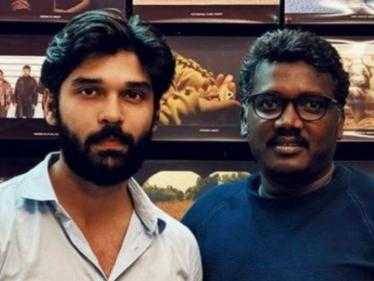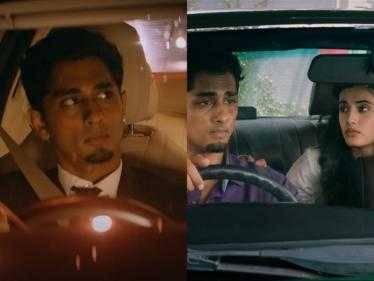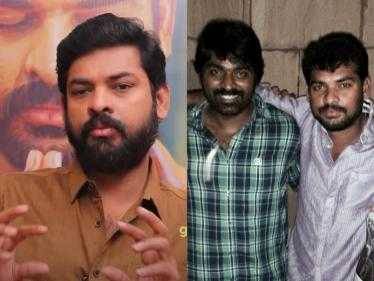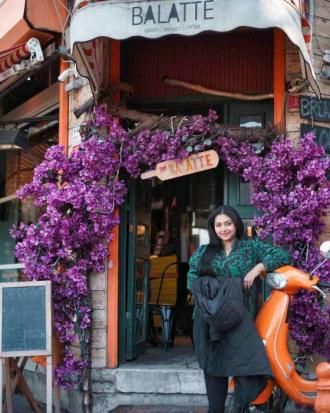Neelavelicham Movie Cast & Crew
Aashiq Abu's Neelavelicham is based on the short story of the same name by Vaikom Muhammad Basheer, which was made into a blockbuster film version named Bhargavi Nilayam in 1964. That's the year the new film is set in, and if there is one image that sums up Neelavelicham, it's that of a romance being depicted by two flowers, with a butterfly flitting between them. This romance is told in a flashback, a time when the only way to show intimacy on screen was through suggestive nature imagery. But there's another exquisite layer here, which comes from a song in the older film that is recreated here: "Anuraga madhu chashakam". The dancer is Bhargavi (Rima Kallingal), and she's outfitted like a butterfly. (The lyrics, too, refer to her as a butterfly: njanoru madhumaasa shalabhamallo.) And flowers are an integral part of the film's decor.
In the present day, the Bhargavi from the flashback is a ghost in a white sari. (There is a lovely explanation for the colour of the attire, which comes in a conversation with her lover, played by Roshan Mathew.) Bhargavi haunts the house she lived in, and Neelavelicham opens deceptively, with an intruder who's terrorised by this ghost on a moonlit night. But the film that follows is not exactly a "horror movie". The protagonist is a writer, played by Tovino Thomas. The way he refers to himself – paava patta sahithyakaran – hints that he has an elevated literary sensibility. Why does he continue to live in a house he knows is haunted? Did no one warn him when he paid the advance? Did he not sense anything wrong when he enters the premises and finds the place in a shambles, with apparently more dust and cobwebs than bricks and mortar? And why isn't he scared of the ghost, at least initially?
This lack of conventional "logic" allows two readings. One, when the writer decides to pen down Bhargavi's story, when he casually talks to her as though she is a real person, the act can be seen as a creator in communication with his muse in order to make art. And what is a muse but a kind of ghost: unseen, appearing at its own will, and "possessing" you to create something? When the writer – who is Basheer himself, though he is not explicitly called so – decides to find out what happened with Bhargavi, he is, in essence, doing research for a story. And two, the writer and the ghost are kindred… spirits, if you will. In a bold screenwriting choice, given the attention span these days, we get two solo songs in quick succession: one for the writer, and one for the ghost. Both songs are about loneliness and yearning. And even physically, the writer and the ghost are shot similarly. They are reflected in mirrors. They are filmed through doorways that act like a frame within a frame. They are often dressed in white. And they are often seen by the sea.
That's why Neelavelicham is not a horror movie. Seen either way, the ghost is a metaphor, and we are never sure if we are seeing a "real" story being uncovered by the writer or if we are always within this writer's story, within his imagination, within Basheer's imagination. The surreal elements – like the slow-spreading blue light of the title – add to this feel. The other "feel" of the film is full-on retro. We get a Pankaj Mullick LP record and an Awaara song. We get coy looks from a kohl-eyed Bhargavi and her sitar-playing lover. We get a tribute to Basheer's Mathilukal, written in the mid-60s. Most importantly, we get the pace of a retro movie: a long and patient buildup to the interval point. And even afterwards, when things really begin to happen, the pace doesn't exactly pick up. The film is a deliberate slow-burn.
But while these aspects are impressive to note and process in the mind, there is no emotional connection – neither in the flashback between Bhargavi and her lover, nor in the present-day story between Bhargavi and the writer. The latter is a crucial misstep, because we really need to feel the bond the writer develops with his ghost-muse. The role is right up Tovino's comfort zone and he's lovely as a bespectacled presence, but he is given nothing significant to chew on. No actor is, really. Basheer wrote the screenplay for the older film, and the additional writing here is by Hrishikesh Bhaskaran. But there isn't one moment that truly surprises you. Shine Tom Chacko's character is especially one-note. His shifty behaviour early on marks him out as the possible villain, and when he does turn into one, he is just… "a villain". There's no psychology to the man.
As a result, we are left with an academic exercise (an homage) rather than an affecting work of art. There's art behind the camera, sure – in Girish Gangadharan's delicate colours and frames, in Bijibal and Rex Vijayan's superb recreations of MS Baburaj's older songs. (Vaasantha panchami naalil is especially gorgeous.) But the utter simplicity and predictability of the surface story, which may have been enough for a 1960s audience, makes Neelavelicham a slog to sit through. The retro touches are fine. The problem is that the writing has not been brought to the modern day. It's too respectful of the original material and there's no new take, no new angle, no new approach. There's beauty in the thoughts, there's beauty in the making – but the beauty in the story's central conceits never comes through. The film is itself a ghost. It slips away as you are watching it. It needed a lot more narrative flesh and blood.


